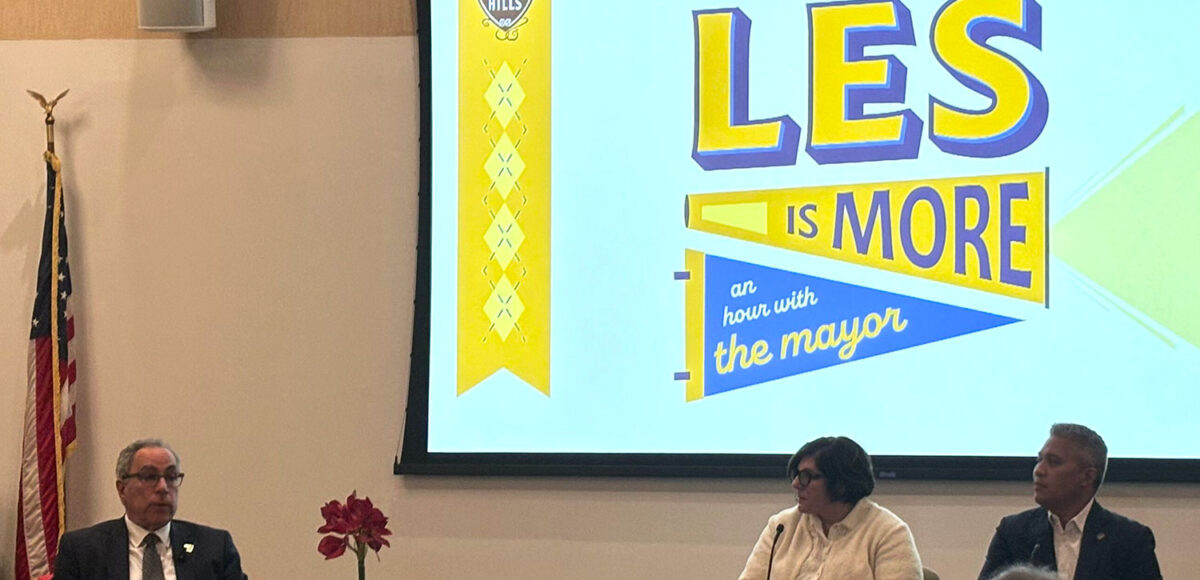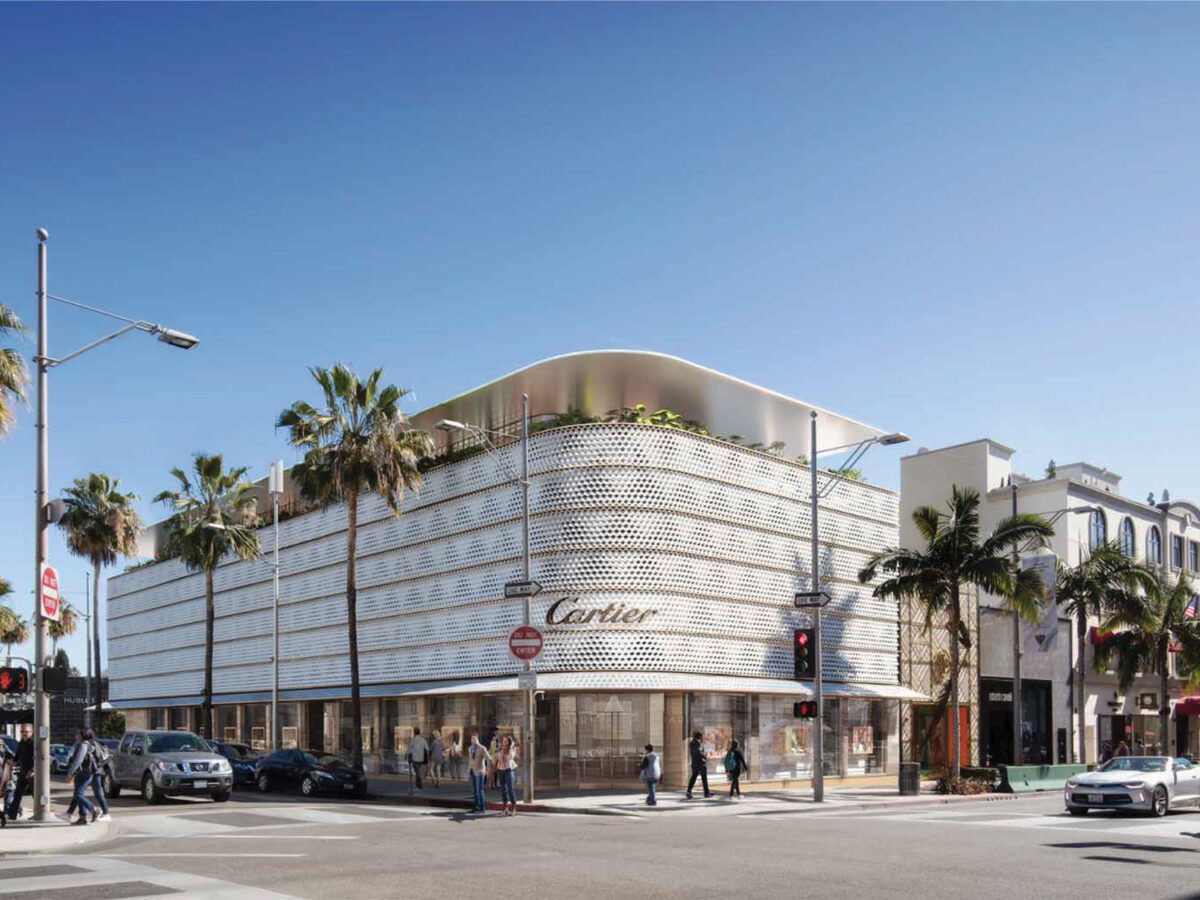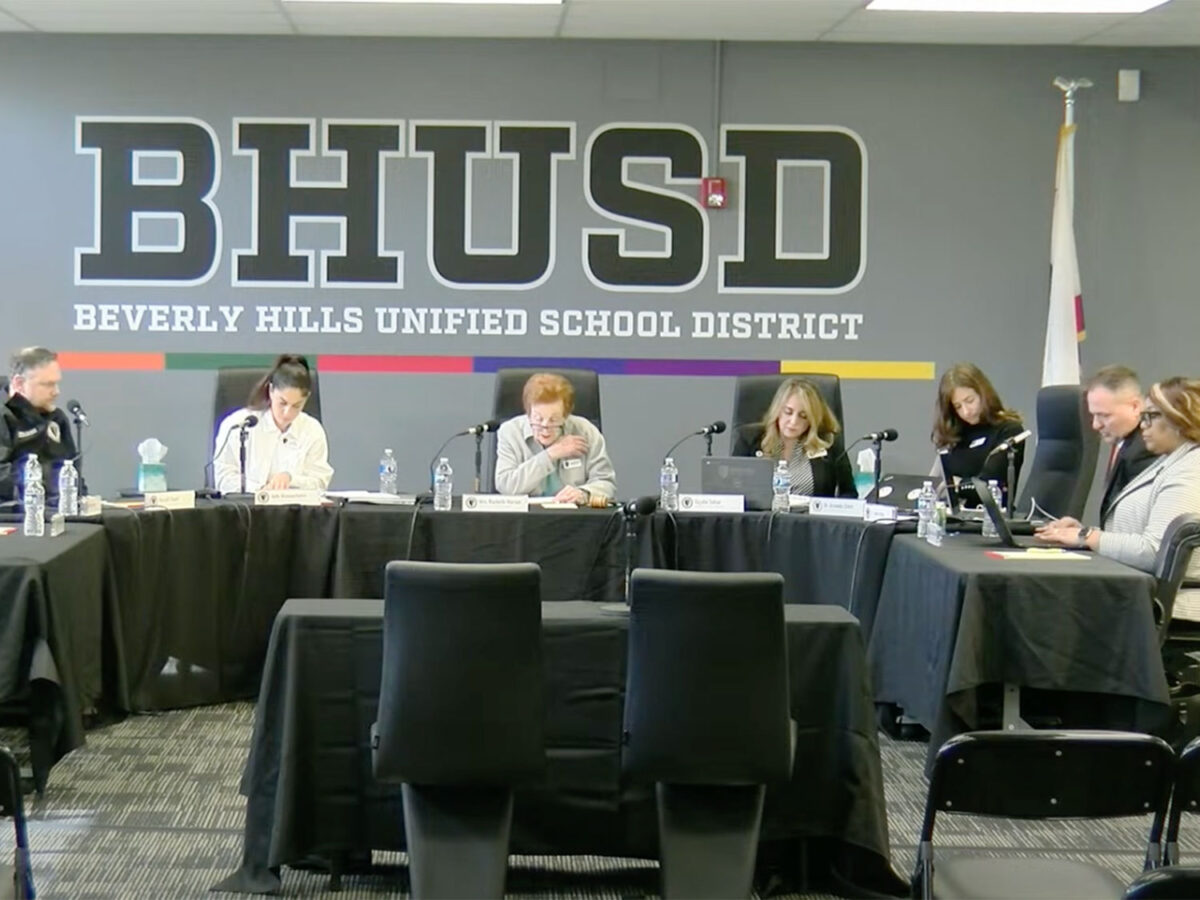On Feb. 3, Mayor Lester Friedman held a sustainability edition of his “Les is More: An Hour with the Mayor” series. Friedman was joined by panelists from the city’s Public Works department, including Director Shana Epstein, Environmental Compliance and Sustainability Programs Manager Josette Descalzo and Sustainability Program Administrator Amanda Grossman. The event focused on important sustainability initiatives in the city and shared information on how Beverly Hills is preparing for a sustainable, resilient and eco-friendly future.
In the United States, the responsibility for implementing carbon emission reduction measures falls on state and local government, as opposed to the federal government. As a result, Friedman asked the Public Works department about the initiatives the city has undertaken to reduce carbon emissions.
One such initiative was the City Council’s decision in 2018 to join the Clean Power Alliance (CPA), a joint power authority comprising 35 cities across Los Angeles County and Ventura County. The CPA grants access to affordable and renewable electricity for Beverly Hills, allowing many residents and businesses to access affordable, 100% renewable electricity. By being part of the CPA, the city has reduced its reliance on fossil fuels for electricity generation and switched to cleaner alternatives like wind, solar and geothermal energy.
“As a result of this policy decision, we have been able to reduce the city’s greenhouse gas emissions by approximately 12% annually. It’s a great reduction of emissions that the city has achieved just by being a member of the CPA,” said Descalzo.
Effective March 18, the city is prohibiting the use of single-use plastic and polystyrene material in food-service establishments. For some of the city’s restaurants, this will come as no surprise. “We’ve received some great feedback from restaurants who have already transitioned. They’ve followed all of our resources to purchase compostable alternatives,” Descalzo said.
Descalzo urged businesses worried about the cost impact of transitioning away from single-use plastic to contact the Public Works department to further assist in this transition.
The city has also been developing a Climate Action and Adaptation Plan, which will serve as Beverly Hills’ roadmap to carbon neutrality and help reduce carbon emissions as a community and city. The plan features elements such as decarbonization, improving sustainable modes of transport, waste diversion (particularly for organic waste) and localizing water infrastructure.
Epstein confirmed that the city’s water quality meets or exceeds all standards and shared further details on the city’s plans to increase local groundwater capabilities. “We are pursuing two new wells, one on Le Doux Road and one on Gregory Way … and we’re also looking at new properties so our [water] plant can run at full capacity, with potential to expand,” she said.
Climate change increases the risk of power outages, with extreme weather events placing stress on power infrastructure. Friedman asked the panel how citizens of Beverly Hills can remain prepared in such cases.
“We should be prepared for longer durations of power outages,” Descalzo said. “Residents should start preparing for energy resiliency—in simple terms, that’s solar and battery applications. Have backup power at your property … with the cost of solar panels and battery power going down, it’s a wise investment and something to think about.”
Addressing a question from a resident about the city’s use of electric vehicle provisions, Descalzo shared that the city recently added 63 electric vehicle charging stations to its vehicle fleet in anticipation of transitioning single-person vehicle patrols into electric vehicles. Bigger vehicles like the fire trucks used by the Beverly Hills Fire Department are powered by renewable, compressed natural gas, which is the second-cleanest fuel type available. “In terms of sustainable fuel, this city is top-notch. We’re ahead of the game,” Descalzo said.
The Public Works department concluded the “Les is More” event by reaffirming their commitment to community engagement and education. Grossman said that an important part of the Climate Action and Adaptation Plan involves working with the Beverly Hills Unified School District to educate the city’s younger residents on the significance of adopting eco-friendly initiatives.
“They take that knowledge and bring it home to teach their parents. Sometimes, that’s the most effective way for behavior change,” Grossman said. “Other strategies we want to do moving forward [involve] community events like this to engage with the public. It’s great to see an amazing crowd here, excited about sustainability.”







